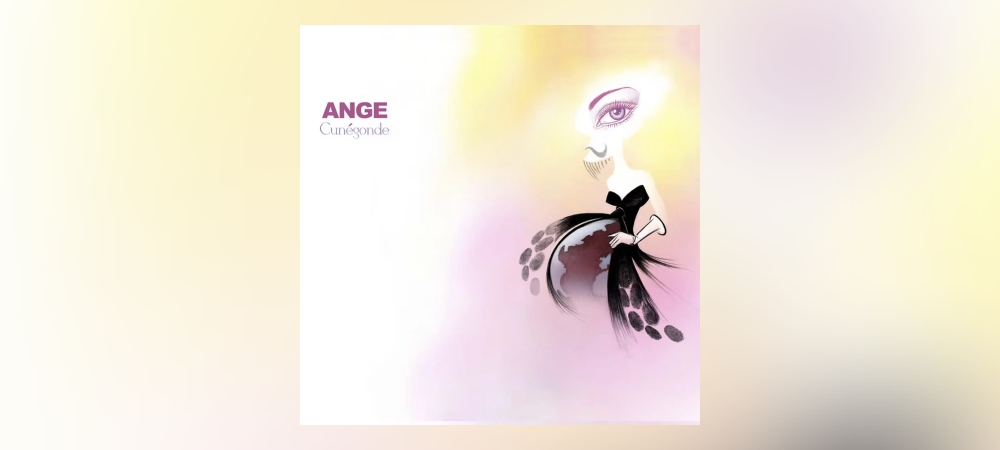There are so many classic prog artists from the 70s still making a living from making music that I hardly get surprised anymore when a new one pops up. However, I must admit, I was pretty shocked to see the fabled French art-prog Ange drop into our pipeline with little fanfare. Even more surprising was the revelation that the band had never really stopped making music; except for a few years in the 90s when brothers Francis and Christian Décamps fell out over the direction of the group, Ange has been active the whole time.
I first discovered Ange when I was attempting to find new bands to listen to with ProgArchives’ search function; having discovered the joys of RPI from Italy, I wanted to find more international groups. Periodically, I would filter the search by country and see what floated to the top, and Ange had several albums from the 70s that piqued my interest. I diligently purchased an economy box set entitled Ange – 4 Albums Originaux which contained their 2nd album through their 5th.
I was instantly smitten with the spooky, murky-sounding Le Cimetière des arlequins, whose atmosphere had as much to do with the quality of the music as the lyrics or musicianship. As musicians, they didn’t come anywhere close to the technicality of other French groups such as Atoll or Magma, but the poetry and artistic nature of their music seemed to touch me, even if it was sung in a different language. And the Mellotron has never sounded more haunting than it does here; I’m not sure if Décamps’ keyboard wavering in and out of tune was on purpose, but the effect is so eerie that I’ve never forgotten it.
Later albums would sound much cleaner, and the songs fell less into the straight ‘prog’ territory. Some songs were so lyrically dense (in French, mind) that I found them off-putting. While there are joys here and there, I never got into the other Ange albums in the way I did with the second.
But all these years later, I find that the group is still knocking about, today helmed by Christian Décamps and his son Tristan, as it has been for nearly thirty years. The current line-up has been stable since 2003, a remarkable achievement for any group. Tristan lends his vocals to the first track of the new album, Un diamant dans le cœur. Upon the first listen to this track, I was worried that it was a bit too ‘4/4’ to be a prog track and could be indicative of a dull album to come. I was wrong.
The very next track – Fruits et légumes – has a title that is indicative of a nursery rhyme, but is anything but. This seven-minute mini-opera has Christian singing tongue-in-cheek lyrics which anthropomorphise the fruit and vegetables, lambasting ‘vegan wizards’ who ‘murder the fruit in its flesh’. It all gets pretty dramatic with a chant of “Save the fruit and vegetables,” roughly halfway through the song, before an extended, exciting instrumental brings it to a finish. It’s a lot more than what I expected of this group!
And just like the band’s earlier work, the following songs don’t fall neatly in line either, we pass between shades of symphonic rock (Le langage des fluides), electronic (the haunting Un passage de rêve with a monologue by Christian) and even metal (on Quitter la meute). The group have a remarkable ability to take their music in different directions while giving the album a cohesive sound.
However, the masterpiece of this album is a deep cut, buried in the second half. A string of three six-minute songs brings the album to a close, and the first of these is Ennio, surely a tribute to legendary film composer Ennio Morricone, who passed away in 2020. Deep, twanging guitars (evocative of Morricone’s work on Sergio Leone’s spaghetti Westerns) set up the central theme before a pair of verses with abstract, esoteric lyrics pay tribute to the man. A chant of “L’œil du maître, à jamais, à jamais…” (The eye of the master, forever, forever) heralds the return of the beautiful central theme, executed magnificently with the use of a string section. Each repetition feels stronger and stronger until it comes to a sudden close, leaving just the string section for the coda. This isn’t what I typically go for with prog rock, but the band have made something truly special here.
The album ends on the title track, with another mysterious subject which I’ve yet to make heads or tails of. I discovered that the name Cunégonde is a rare, archaic French name; coupled with the somewhat apocalyptic nature of the lyrics, I wonder if Christian is praying to a fictional angel here (referencing the band’s name itself). « Cunégonde, sera-tu sauver le monde ? » The quiet, pensive middle section is followed by a loud and satisfying prog-out, bringing this chapter of the band’s half-century history to a close.
I won’t lie, my expectations were quite low, but Ange have managed to produce an album that’s just as fresh, diverse and satisfying as any of their early work. If it’s speedy, technical wizardry you’re after, you’ve come to the wrong place, as Ange was never about that. Thought-provoking, pensive, well-composed music is on offer here, and while some of it might get lost in translation for English listeners, there’s still plenty of joy to be found.
TRACK LISTING
01. Un Diamant Dans Le Cœur (5:36)
02. Fruits Et Légumes (7:00)
03. La Langage Des Fluides (6:10)
04. Pace Nobilis (4:09)
05. Un Passage De Rêve (3:37)
06. Prisonnier De L’aube (4:43)
07. Ennio (6:07)
08. Quitter La Meute (6:43)
09. Cunégonde (6:37)
Total Time – 50:42
MUSICIANS
Tristan Décamps – Vocals, Keyboards
Hassan Hajdi – Guitars, Choirs
Thierry Sidhoum – Bass
Benoît Cazzulini – Drums, Programming
Séraphin Palmeri – Keyboards
Christian Décamps – Vocals
ADDITIONAL INFO
Record Label: Art Disto
Catalogue#: ART17/1
Country of Origin: France
Date of Release: 19th September 2025





